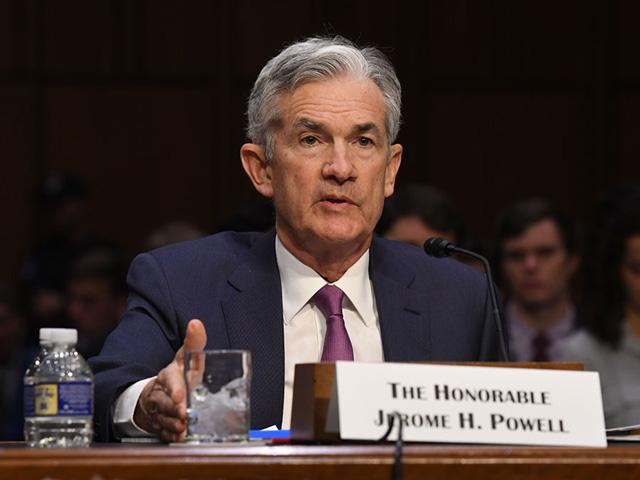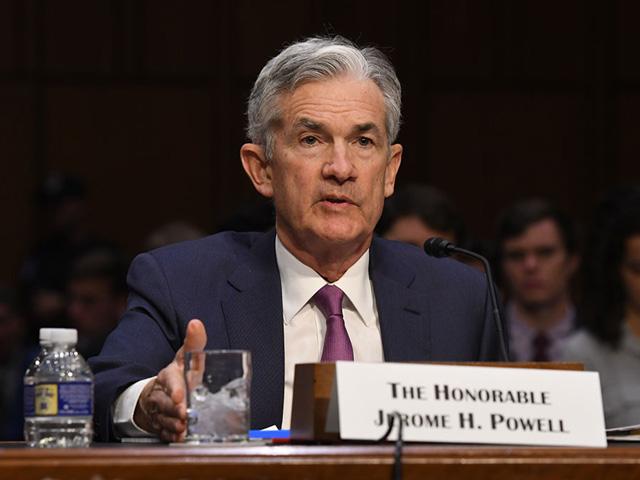An Urban's Rural View
The Case of the Disappearing Punchbowl
Now that President Joe Biden has nominated Jerome "Jay" Powell for another term as chairman of the Federal Reserve Board, his friends face a conundrum. Send him congratulations? Or condolences?
It's a nice gig, no question. As manager of the supply of the world's reserve currency, the dollar, the Fed chair is one of the world's most powerful men. And Powell can feel complimented that a Democratic president picked him, a Republican, over the well-qualified Democrat some Democratic senators were backing.
In announcing his choice, Biden praised Powell for preserving the Fed's independence. "Why am I not picking fresh blood or taking the Fed in a different direction?" Biden said. "Put directly, at this moment of both enormous potential and enormous uncertainty for our economy, we need stability and independence at the Federal Reserve. Jay has proven the independence that I value."
In addition to resisting sometimes fierce political pressure from President Donald Trump, Powell steered the economy safely through the COVID-19 shock, winning the confidence of financial markets, which had initially reacted to COVID with a deep, month-long plunge. Powell also dealt adroitly with the Fed's overseers in Congress.
For all these reasons the Senate is likely to approve his nomination despite opposition from a few progressive Democrats. Cause for congratulations, you might say.
But in his second term, Powell will be taking on the painful part of the Fed's mission, the one that's summarized in the homey maxim, "Taking away the punchbowl just as the party gets going." In other words, raising interest rates.
That's because the inflation that has beset the economy in recent months is proving stronger and more lasting than Powell expected. If outsized price increases continue for much longer, there will be many nights of insomnia in Powell's future.
P[L1] D[0x0] M[300x250] OOP[F] ADUNIT[] T[]
The Fed's inflation-hawk critics have been arguing for months that the Fed wasn't taking inflation seriously enough, and there's some merit to that criticism. While the Fed is gradually cutting back on its stimulatory asset purchases in preparation for possible interest-rate increases, Fed policymakers were signaling until recently that they didn't expect those increases until later next year.
The Fed's eternal problem is that taming inflation is, by law, only one of its jobs. Congress has given it a second mandate, maintaining maximum employment, that at times conflicts with controlling inflation.
Although the unemployment rate fell to only 4.6% in October, the economy can hardly be said to be at maximum employment. Among other things, there are 6 million Americans who want a job but were not counted in the labor force in October because they had not actively looked for work in the previous four weeks. (https://www.bls.gov/…)
The combination of strong inflation and less-than-full employment has left the Fed with an agonizing choice. Raising interest rates is the obvious response to inflation but retards the return to full employment. Keeping interest rates low maintains the momentum toward full employment but allows inflation to rage.
For perhaps too long, the Fed favored the maximum-employment mandate, insisting that big price increases were "transitory." The Fed chose to strive for full employment while tolerating price increases well above its 2% target, thinking inflation would soon recede.
Lately the Fed has been sounding more worried about inflation. Some Fed officials are talking about tightening monetary policy sooner and markets are now pricing in the possibility of a rate increase by next May.
In Senate testimony Nov. 30, Powell set the stage for earlier rate increases, indicating the Fed will soon consider accelerating the cutback of stimulatory asset purchases. He signaled a switch to the fighting-inflation mandate, declaring that "to get back to the kind of great labor market we had before the pandemic, we're going to need ... stable prices." (https://www.wsj.com/…)
Inflation hawks worry the public will start to expect big price increases, for inflationary expectations can become a self-fulfilling prophecy. That hasn't happened yet but if it does, small and gradual interest-rate increases are unlikely to suffice. If a wage-price spiral develops, the Fed could be forced to take a sledgehammer to the economy.
One reason the Fed has waited so long is the unusual nature of this inflation. Though inflation is often defined as too much money chasing too few goods, too much money is the usual problem. The government's monetary and fiscal policies create excess demand.
Today's inflation, however, is in part the result of too few goods, of bottlenecks in the economy that COVID wrought. The best answer to supply-induced inflation isn't higher interest rates; it's eased bottlenecks. The problem is they haven't eased as quickly as the Fed expected.
If they don't ease soon, the Fed will either have to raise rates faster or risk having to make bigger rate increases later. That's not a happy prospect for Powell, much less for farmers, ranchers and other business borrowers.
Powell's friends, therefore, should send him condolences as well as congratulations. We all should wish him well. None of us want to live with the results if he fails.
Urban Lehner can be reached at urbanize@gmail.com
(c) Copyright 2021 DTN, LLC. All rights reserved.






Comments
To comment, please Log In or Join our Community .